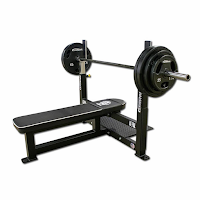Student-Athlete Survey Data: To Share or Not to Share

Improving Student-Athlete Surveys: A “How-To” Guide for Athletics Administrators
This is the second in a series of posts that will provide guidance on moving your student-athlete survey from a “vanity metrics” activity to a valuable and actionable tool to gain competitive advantage for your department.
Post #2: To Share or Not to Share
You have a lot of challenges as an athletic administrator and there is already a lot of “noise” surrounding your program, teams, coaches and athletes. Fans weigh in relentlessly on not-so underground message boards and the media always have their own opinions about what you are doing. One seemingly innocuous tweet can land you in the middle of a firestorm. This information age we are living in is both a blessing and a curse.
In an age of ever-present sharing it may be tempting to trumpet your “great student-athlete survey results” to recruit future student-athletes. Similarly, it may seem enticing to allow students the opportunity to like or dislike the comments of their peers. Your decisions to facilitate these things should align with your purpose for doing your the survey in the first place. Is your philosophy one of education, risk management and quality control for your department? Or are you seeking to provide a favorable, but not necessarily accurate, view of your department or team through social media? If it’s the latter, you could be opening your department to legal scrutiny.
Three trends are happening today regarding data and social media:
1. News outlets are using FOIA requests to review and then write about what your student-athletes are saying about their experiences. Here’s one article from New Mexico which published quotes student-athletes gave during exit interviews. The more you publically volunteer that you are gathering this information, the more at risk you become. Remember the National Enquirer ads that said, “Enquiring minds want to know.”? Well they do want to know now more than ever, so for athletic departments the question becomes do you want people to have to dig to find this information or do you want to advertise that you have it and hand it over with a bow?
2. People sue each other - a lot. Talk with just about any athletic director in 2017, and they can probably share with you a story about either themselves personally, or a colleague who was threatened with a lawsuit. Maybe a student-athlete didn’t like the medical treatment they received or perhaps they thought they should get more playing time. Or maybe there was a coaching change that left them scrambling to find their place in a program and finish their degree. The scenarios are endless and an unfortunate drain on time and resources.
Now imagine you posted a row of 5 star reviews about your program on your website. “Jordan” joins a team in your department as a freshman and is really excited to be a [insert your mascot name here!] But as the year goes on, Jordan realizes that being a college student-athlete, maintaining GPA, etc. is a lot of hard work. Perhaps they were the star of their high school team, but now they are sitting the bench - a lot. They go back to those 5 star reviews you posted on your website and think, “None of this was true - this isn’t my experience. I was lied to and I have proof.” Adding fuel to their case is the less-than-full picture shared with selective data reporting, and seeing that you dropped out all of the negative reviews and ratings they can claim fraud.
This approach puts the Hawthorne Effect to work in ways that aren’t likely to be beneficial to your evaluation. Some people will tailor their comments to receive a reaction, while others will withhold information for fear of providing personal thoughts that aren’t well received by their peers. It can create some unintended power dynamics on your team that can have lasting negative repercussions.
Gathering data about your student-athletes experiences is critical component of running an athletic department and should be handled with care. Aligning the purpose of why you are conducting the survey with your actions, and using a tool built to meet your intentions, is likely the best way to guide your decision making.
When you align your core values and work hard to provide every student-athlete a distinctive education and a championship experience, everybody wins. And that news will spread on social media all by itself.
Next Up in Post #3: Ways Actionable Student-Athlete Data Supports your Work
When you collect actionable data, it can support your program in a holistic manner. Read about the top areas where better data can positively impact your department.
Athlete Viewpoint is an actionable tool designed by industry experts to alleviate the time and labor your staff spend on this valuable process. Let us do all the work gathering feedback, so you can spend your over-stretched minutes improving the student-athlete experience and making data-driven decisions in a strategic and thoughtful manner.
Watch a brief video, view a sample survey, and schedule a demo of Athlete Viewpoint at www.AthleteViewpoint.com


Comments